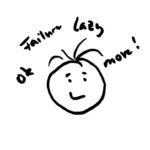
Family Positions
Now that we know that every member of the family belongs to the family and the system, it’s time to move to the second law of family systems.
This law is about order within the family.
This means that every family member has a firm position within the family.
There’s the father position and the mother position. (And it’s flexible enough to make two moms or two dads possible.) These positions are bestowed upon becoming parents. If there are no kids, the positions are just “lover positions”, basically, because there is nobody to parent.
Children’s positions are determined by order of birth, very simply.
Except it’s not that simple. Stillborn babies count, as do aborted babies. They have a position in the family, and – as mentioned last week – they definitely are family members.
And if the parents of this family had children before founding this family, those kids also count. See where it can get tricky?
And see where it might be difficult to give everyone the right position? Continue reading









